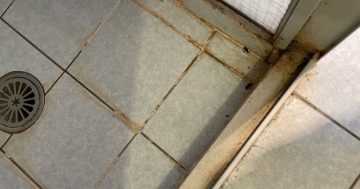
“About time,” is the comment all over Australia to the review of parliamentarians’ expenses. “Why wasn’t it done before?”
The same question could be asked of the ACT Government’s deleteriousness in dealing with two savage dogs in Belconnen.
The animals attacked a man in March 2016 which is not a matter of legal proceedings and will not be subject to further comment here.
What is of concern however is according to media reports at least four earlier complaints beginning in December 2015 were made to the relevant department but only a harassment notice was issued in January 2016.
The dogs were kept in a public housing unit, grounds itself for government action because this is not permitted, and it also is alleged the unit was sublet, another no-no.
Why then did it take three months and someone being injured for action to be taken?
Why too when Transport Canberra and City Services finally acted was one dog put down and one still under investigation after being identified as dangerous? One guilty and one not so guilty perhaps?
The facts of this particular incident are a matter for the law to decide but the accommodating of animals and the alleged subletting of the unit are issues the department should have acted upon, it wasn’t as if it were unaware the lease rules were being broken.
The Minister promises a review of the outcome of the investigation (presumably of the attack) but no comment upon action against the tenant for being in breach of the lease.
And nobody is held responsible.
We taxpayers financially support these government tenants and we should expect they obey the rules of the tenancy (as most do) and if they do not action should be taken against them. This is not always the outcome, however, as some officials have unjustified compassion for offenders, a very unfair attitude toward their law-abiding often long-suffering neighbours.
Official failure to act upon this troublesome minority does not appear to lead to any disciplinary action, not even the catch-all punishment of “counselling”, and the troublemakers continue with impunity, only being moved to another address if their behaviour is too outrageous.
Consequences are different in the private sector and swift action is taken for lease breaches – although I do wonder why sophisticated drug laboratories involving building damage can be set up in rented properties supposedly inspected regularly, because the regularity of inspections reduces problems.
Why, given the value of the taxpayer-owned government housing stock, properties are not checked out more often is as mystifying as high rental arrears. Perhaps these issues could be examined to see whether contracting out to the private sector would lead to improvements?
The lack of action taken against these offenders, whether it leads to such drastic happenings as in Belconnen, is an indictment of the government towards all of its tenants.
Regardless of their circumstances, public housing tenants should enjoy the same rights and responsibilities as other suburbanites and should not be ignored and treated as second-class citizens.




















